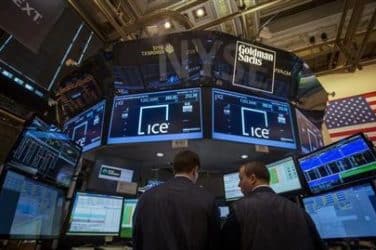
MiFID gives Member States and ESMA authority over commodities derivatives.
The European Union is undertaking radical steps to impose position limits and position reporting for commodity derivatives, via the revised Markets in Financial Instruments Directive (MiFID II).
Under MiFID II, regulated markets, MTFs, and OTFs (organized trading facilities) that trade commodity derivatives must apply “transparent and non-discriminatory” position limits to support liquidity, prevent market abuse, which take account of the nature and composition of market participants.
The European Commission will introducing legislation to determine position limits, and Member States may not impose more restrictive limits except in exceptional cases.
Member States will have powers to limit the ability of any person to enter into a commodity derivate by setting position limits or limiting the number of commodity derivative contracts per underlying which any given class of persons may enter into.
“They essentially rewrite the regulation of commodity derivatives trading in the EU,” Jacqui Hatfield, partner in the financial services regulation practice at Reed Smith, told Markets Media.
Member States will be required to ensure that regulated markets, MTFs and OTFs on which commodity derivatives are traded will have to adopt position limits or alternative position management arrangements,(such as position management with automatic review thresholds.
“The Commission will also be able to set limits itself, and determine applicable exemptions,” Hatfield said. “Member States will be restricted from imposing more stringent limits than those set by the Commission except where this is justified and proportionate.”
MiFID II grants powers to the European Securities and Markets Authority (ESMA) to act a “coordinator and facilitator” in relation to national positions limits set by Member States.
ESMA also has its own “position management” powers, including limiting the ability for a person to enter into a commodity derivative.
“ESMA and national regulators will each have powers to request a person to reduce his or her commodity derivatives positions, and to stop a person entering into commodity derivatives,” said Hatfield. “Each power will be available even where an existing position limit has not been breached.”
Dealers of commodity derivatives must report real-time trading data to the trading venue. The trading venue in turn will be required to publish a weekly report setting out aggregate position data by category of trader, including the number of long and short positions, and the number of traders in each cat orgy.
“Regulators are empowered to request full breakdowns of trading data from trading venues,” according to a client memo by Cadwalader, Wickersham and Taft.
The provisions echo those adopted in the United States, where the Commodity Futures Trading Commission has dropped a provision on aggregation of positions which would have allowed a company to disaggregate the positions of an “owned non-financial entity” in which it owns a 10 percent or greater interest provided that it could demonstrate that the futures and swaps positions of the entities are independently managed and controlled (the “Owned Entity Exemption”).
If a fund becomes an owner of ten percent or more of an operating company, then the final rule could be construed as providing that the operating company and their trading personnel may not qualify as an independent account controller, notwithstanding an absence of control over the operating company’s trading activities.






